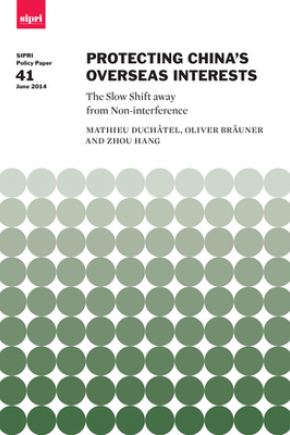Protecting China’s Overseas Interests: The Slow Shift away from Non-interference
Non-interference is one of the Five Principles of Peaceful Coexistence that is core to China’s foreign policy and to its self-image. But in a pragmatic and incremental adaptation to its globalizing economic and security interests, Chinese foreign policy is slowly shifting away from a strict interpretation of this principle. However, the debate on China’s overseas interests and noninterference is far from over. There is still a degree of uncertainty regarding whether China will continue on the path of pragmatic adaptation within the non-interference framework, and the degree of change in concrete policy outcomes that such an evolution would entail.
The authors show that the possibility of a dramatic policy change cannot be ruled out, as dramatic and unforeseen events could precipitate change. China’s foreign policy could also strictly remain within the boundaries of non-interference. Its ultimate strategic choice will certainly have far-reaching effects on global governance and international security.
About the authors
Oliver Bräuner (Germany) is a Researcher with SIPRI’s China and Global Security Project. His research interests include China–EU security relations and the protection of Chinese citizens in the Middle East.
Zhou Hang (China) is a Researcher with SIPRI’s China and Global Security Project. His research interests include Africa–China relations and maritime security.
1. Introduction
2. Chinese debates on non-interference
3. Protecting China’s energy interests overseas
4. Protecting Chinese nationals overseas
5. Conclusions


